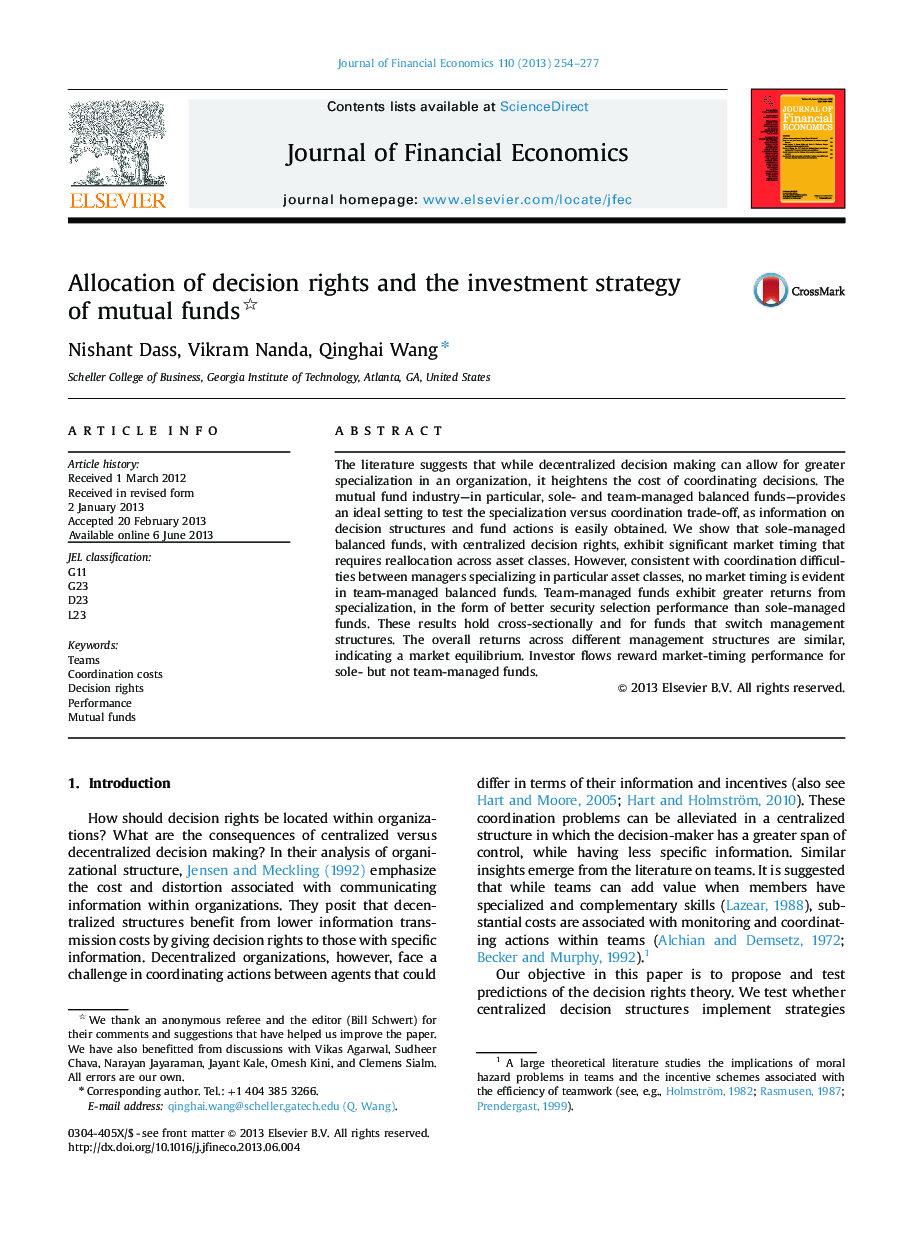| Article ID | Journal | Published Year | Pages | File Type |
|---|---|---|---|---|
| 959635 | Journal of Financial Economics | 2013 | 24 Pages |
The literature suggests that while decentralized decision making can allow for greater specialization in an organization, it heightens the cost of coordinating decisions. The mutual fund industry—in particular, sole- and team-managed balanced funds—provides an ideal setting to test the specialization versus coordination trade-off, as information on decision structures and fund actions is easily obtained. We show that sole-managed balanced funds, with centralized decision rights, exhibit significant market timing that requires reallocation across asset classes. However, consistent with coordination difficulties between managers specializing in particular asset classes, no market timing is evident in team-managed balanced funds. Team-managed funds exhibit greater returns from specialization, in the form of better security selection performance than sole-managed funds. These results hold cross-sectionally and for funds that switch management structures. The overall returns across different management structures are similar, indicating a market equilibrium. Investor flows reward market-timing performance for sole- but not team-managed funds.
